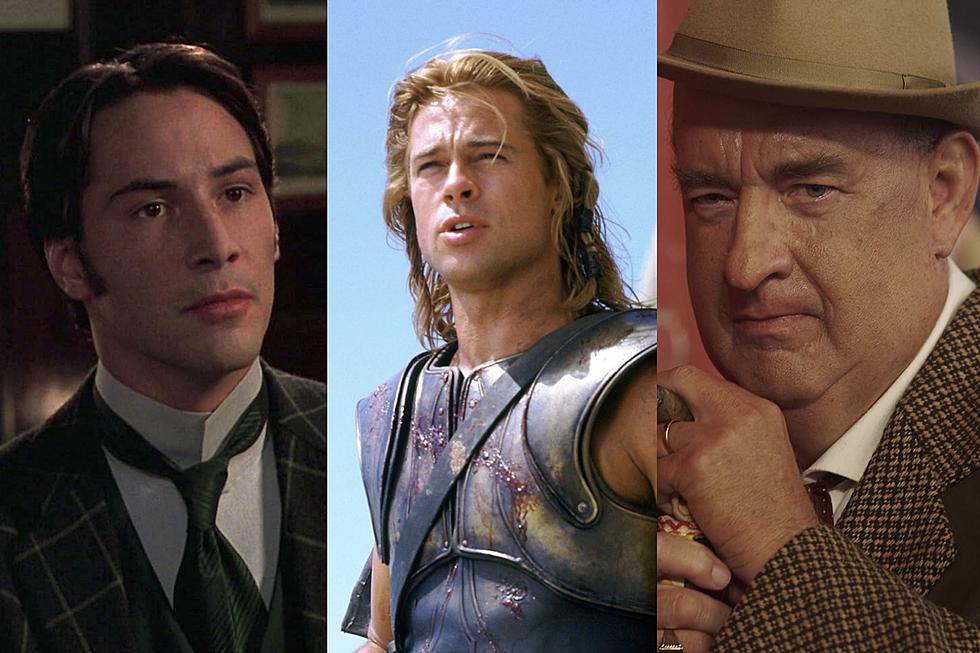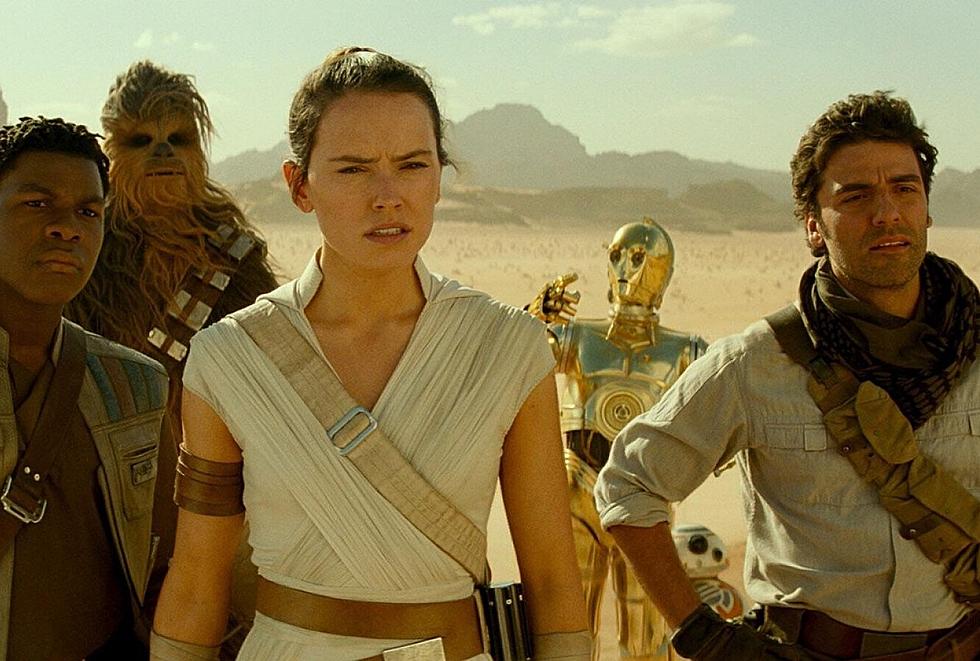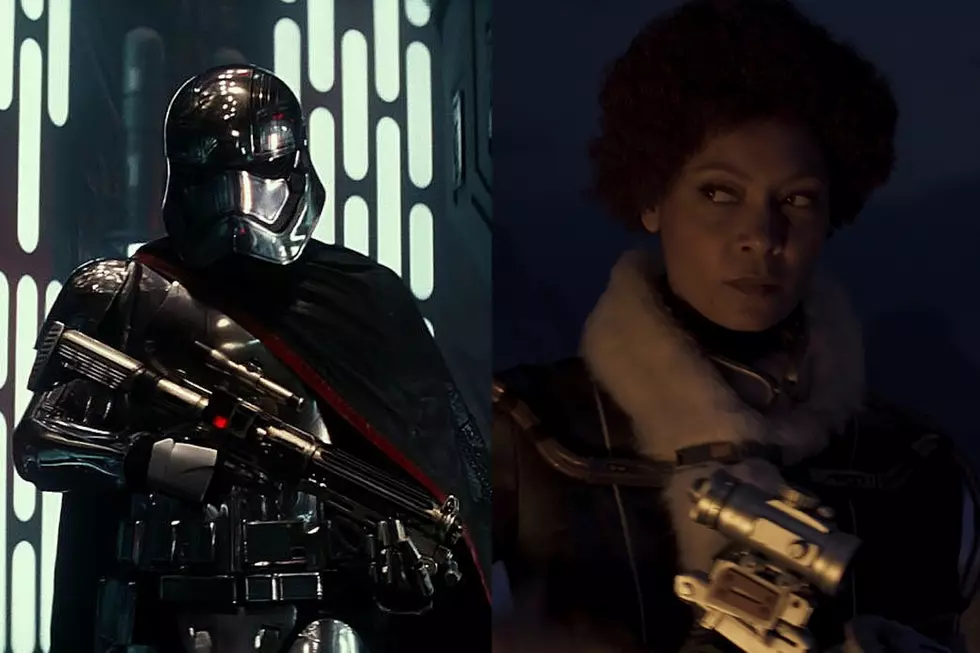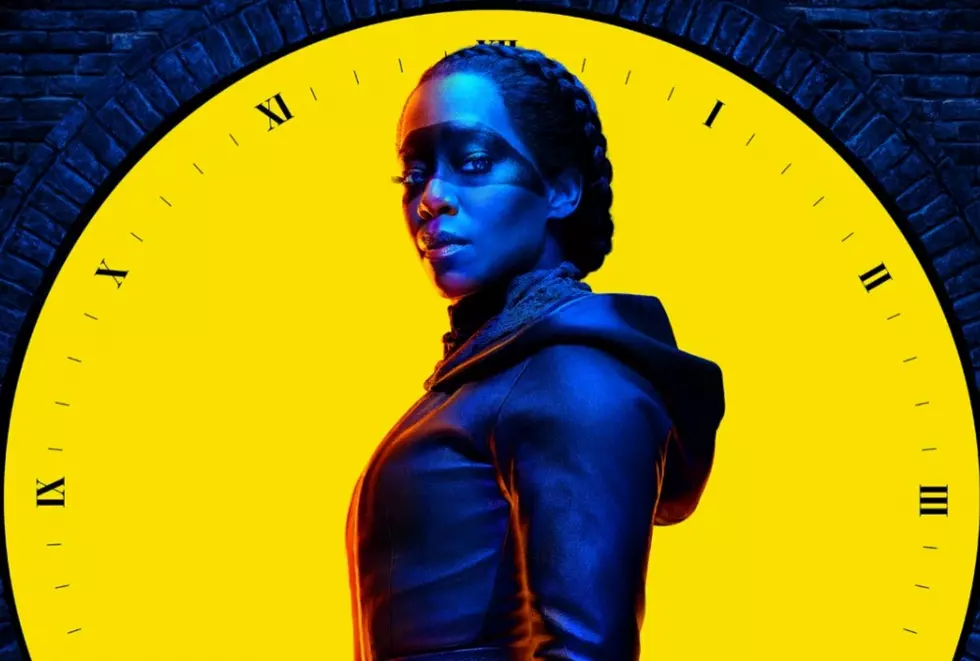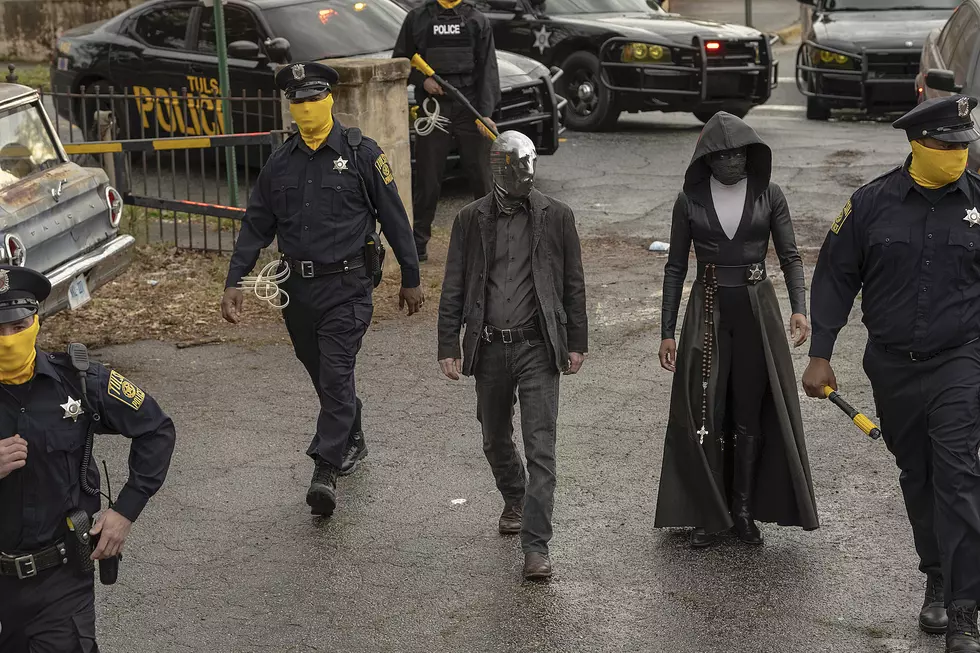
Tom Perrotta on ‘The Leftovers’ Season 2 Finale, Meg’s Guilty Remnant and How He’d Approach a Season 3
The second season of The Leftovers came to a climactic close on Sunday night in a season finale that likely had you in a mix of tears, gasps, some laughter and a decent amount of confusion. If you haven’t watched “I Live Here Now” yet, stop reading, all the spoilers follow.
So Kevin died again. (“I thought I killed you.” “Nope!”) He went to Hotel Purgatory, sang some Simon & Garfunkel karaoke (the afterlife looks pretty fun) and came back to life again to find his entire extended family waiting in his living room. But before that, Evie and her two friends staged a protest on the Jarden bridge, faked a bomb explosion and then infiltrated and destroyed the Texas town. The 9,261 are no more and Miracle is no longer spared. There was also another fantastic performance from Regina King, Mary woke up, finally giving Janel Moloney something to do, and we learned what Evie gave her dad for his birthday.
Earlier this week I caught up with book author and show executive producer Tom Perrotta, who co-wrote the finale with Damon Lindelof. Perrotta gave insight on the ending, what the hotel represents to him and what those Australia clues mean. Although The Leftovers hasn't been renewed by HBO (yet), Perrotta also discussed how he would likely approach a third season.
That finale… wow. There’s so much to talk about. I want to start with the very end which seemed to recall the season opener with the cavewoman and this idea of resurrection as a reunion with family. Was that the arc you and Lindelof had in mind for the season?
Well I think you just put it in such a concise way. You know, not everything is planned. I think we do certain things and then try to understand what they might mean for our story. It was actually a very interesting storytelling challenge for us. We started with the cavewoman sequence and feeling like it had lots of thematic connections to the first season of The Leftovers in terms of a mother losing her a child and an adopted family sort of coming to the rescue. But I think it also has an enormous connection to The Leftovers as a whole, the idea that these awful things happen and somehow humanity figures out a way to continue. I think that we were using it as almost a symbolic overture to the season. The idea of the cave as a kind of tribe or extended family was something we had been thinking about. And I think we just loved the idea coming full circle, of having this overture that people probably had sort of forgotten about, though I think the well in Episode 8 reminded people and [the] return to the water that we did periodically.
But I think you do put it really nicely when you said that, for Kevin anyway, resurrection means another chance at family and in this sense, not just this new nuclear family of him and Nora and Jill and Lily, but really the bigger Garvey clan that we’ve been following. Not only is it another chance at family, but it’s family in a very large sense. I love the idea that when John says, “I don’t know if anyone’s going to be home,” and Kevin says, “Then you come to my place.” There’s some sense that Kevin’s family has gotten bigger over the course of the season and it might get bigger again.
And Meg also has that line about family before the GR infiltrate Jarden. “Family is everything," she says.
Yeah. [Laughs.] As always with Meg, that’s both insightful and somewhat sinister and helps to define some of the space between what the Guilty Remnant is and what Patti’s idea is. So Patti was attacking the very conceptual idea of the family and saying that is holding humanity back in the wake of the Sudden Departure. But Meg is much more thinking like, “Oh you really want to hurt people? Go after their family.” That’s how I interpret that line.
Meg seems to have a different reason to serve as a living reminder in the GR than Patti did. What’s your interpretation of Meg’s motives and mission with her sect of the GR?
I think in Episode 9 she tells Matt in a kind of disingenuous way, “Here’s a place where the Guilty Remnant could never go” because the people aren’t in pain. Of course what she means is, that’s of course where [she's] going to attack. We’re going to attack our opponent’s strength rather than their weakness. It’s a bold surprise attack and I think it’s a symbolic attack on the idea that there is a safe place. So in that sense, it’s in keeping with the larger Guilty Remnant ideology, but it also is a very much a strike at the one place where the people are saying is exceptional and is a place where you can go to hide. Meg is saying there’s no place you can hide.
Moving from Season 1 to Season 2, did you and Lindelof initially have this plan of how you’d use Meg and bring her back in such a pivotal way this season?
That was probably the biggest storytelling challenge for us. One of the things we struggled with first season was getting the Tom and Christine story to connect to the Mapleton story, and of course we had to wait all the way to the last few minutes of the [Season 1] finale to make that happen. And this year we were trying to avoid it, but to the extent that the Guilty Remnant was still operating. They were operating back in Mapleton and we found new jobs for Tom and Laurie relating to it and Meg of course was the one holdover now that Patti was dead. The storytelling challenge for us was to get the stories to come together because I think we didn’t want to tell two separate stories in the end, we wanted to tell one unified story.
Episode 8 was quite a risky deviation from the rest of the series by taking us into a supernatural realm for the first time. What was the discussion behind bringing the hotel back in the finale?
That’s a classic Lindelof double-down! Damon is just fearless. I think one of the things that we learned with Episode 8 was that the hard part, in my mind, was getting Kevin to accept this idea that he had to die to live. Once he had done that then we had all this narrative freedom once we were on the other side. I’m not sure where the supernatural part of it comes in because it’s possible to see it as a kind of dream or a vision that he has while he’s in between states of live and death. Or it’s possible to say that he actually went to some physical space that operates as a kind of personal purgatory for him. I think what we found was there was a lot of narrative freedom and it was really a fun storytelling space for us, so I think to go back just felt, not just a bold move but something that we’d earned.
Do you have your own interpretation of what the hotel is? An afterlife, a limbo, maybe a hallucination?
What I love about the show is this idea that both interpretations are equally plausible, that really it’s a matter of the viewer/critic and even the writer taking a position on that. If I had to take a position, I’m more interested in the idea of vision or dreams than I am in some concrete afterlife. But that’s really a preference, not a right answer. Someone who sees it in another because that’s their preference, that’s fine. To me a lot of the story is about, if you choose to live or to be attuned to one kind of world, meaning if you decide the world is bound by scientific laws, you’ll see the world in a certain way and you’ll do your best to reject anomalies that challenge that. But if you choose to live in a dream space or magical space or an actively religious space, you might experience random events as being full of meaning. So I think really the perceiver’s choice is what matters, not so much some objective reality.
I think that’s what is so beautiful about the show in how it leaves things open to interpretations. But I’m curious, when you’re sitting in the writer’s room, is there a hesitancy towards making anything too clear or explaining too much, or is does the ambiguity come naturally?
I think there’s a kind of desire to have [at least] two possible explanations for things that are going on. When the story pushes too hard in one direction, somebody’s bound to pull it back the other way. I would say yes, we’re very conscious of not wanting to create a single interpretive rule book, you know? I would say one of the things I really love are the moments when the show seemed to offer one of those supernatural explanations that you find in a more genre version of the show. When the professor tells Nora that she has been occupied by the demon Azrael. Nora just laughs and [it] doesn’t feel like the story she’s living in. And when Patti tells Kevin, “You know you gotta go to Egypt and get this chalice.” That’s another kind of Indiana Jones story, and then she laughs and says, “I don’t know what you’re supposed to do!” That’s the story we’re telling, which is there’s not going to be this simple genre explanation with an exciting quest attached to it. This is people muddling through a world that they’re not sure how to interpret.
There is so much self-awareness in the writing this season and a lot of humor. With that also came added optimism. Was the decision to move the series in a more hopeful direction this season a choice from the beginning?
Yeah. I think that said, we did end the finale of Season 1 on this first hopeful Leftovers note, which is Kevin and Nora are coming together. There’s this baby that they’re maybe going to build a family around. So rather than being lost, which is really the subtext of Season 1, we ended with something being found. We kind of took that as our touchstone then like, okay we had a glimmer of hope last season. Can this family build on that hope? Can they create something more lasting? So at least they’re involved in a positive course of action. Of course the world turns pretty dark on them pretty quickly and Kevin dies twice in the course of this season. So I’d say hope Leftovers-style. [Laughs.] Which is pretty fragile and qualified. But we thought the first season, everyone is kind of suffering from a PTSD from this big event and Season 2 is really about how can they start to feel better. To some degree, I think we pushed them a little further down that road.
Something a lot of viewers and critics commented on this year was the recurrence of the “magical black man” trope. After Holy Wayne last year, there was Isaac and Virgil this season. Is there a larger reason or meaning behind it?
Well, this is sort of an interesting issue because I agree with you that Virgil was I think moving very close to that stereotype. On the other hand, John Murphy is like the ultra-rationalist black man. I think the story does have a number of iterations. We did bring in a black family, so they’re participating of the larger story of The Leftovers, which does often involve strangeness and magic. Virgil does maybe follow that stereotype a little bit and we were sort of uncomfortably aware of it, but he also, I thought, was a really interesting character with a complicated back story.
You know, Holy Wayne is actually a white guy in the book, but we were so taken with the actor Paterson Joseph that he became righteous by a quirk of casting. But I think that’s a more complicated story because it’s unclear to what extent Holy Wayne is magic or a charlatan or some combination of both. He’s a bit of a tragic figure. He’s a little more complicated. But I agree with you that Virgil maybe is close to that. And Patti called him [a "magical black man" in Episode 7], which I think is us being aware that we were in that space. I think he turned out to be a really interesting character played with great humor and emotional depth by Steven Williams. And I love how funny he is as the concierge in Episode 8.
The use of music this season was fantastic and unexpected, with everything from Bassnectar to Olivia Newton John, Grandmaster Flash to two variations on The Pixies’ “Where Is My Mind.” How did you and Lindelof end up using more pop music this season?
We have a wonderful music supervisor, Liza Richardson. I think Damon is really interested in finding the perfect music for – basically I think what happened is we have one of the best composers around, Max Richter, [who] wrote the beautiful piano music that is the signature of The Leftovers. We deploy it at certain moments and it kind of reminds you of the show you’re in and the emotional space that is peculiar to the show. I think in Season 1 we really were thinking we would have a show that’s mostly scored and we wouldn’t have pop music brought in. And then we often tried to find pop music on the radio say, and we discovered that really cheesy pop music, like “What a Fool Believes” or Captain & Tennille in Episode 3 of the first season were really interesting. They created this kind of comic alienation effect within the dark world of The Leftovers.
I think one of the decisions we made in Season 2 was to have a sort of wider musical palette. We still love the work Max does for us and his music is extremely emotional and very connected to the general mood of the show. But it’s been fun to find pop music that either comments directly on the action, like The Pixies song does, or operates in a funny counterpoint the way the song from Grease did when Nora handcuffed herself to Kevin. Those are really cool moments. One of the great things about a show that goes on to a second season is you can start to learn things about it and change your strategy and start to refine them. That happened with the music and it happened as well with the opening title sequence.
The Season 2 finale almost feels like it could serve as a series finale now that Kevin has reunited with his entire family. But if the show gets renewed, where would you imagine to take these characters in a third season?
That is the question we are just beginning to wrap our minds around. We don’t know if there will be a third season. My sense is that we know where the characters are on the chess board with now, but I think we would try to find some counterintuitive way to start a Season 3 the same way we did Season 2. I don’t think The Leftovers is a very linear show.
“Start in the same way” as in, Do a reboot to a new location?
Well, that I don’t know. I think everything’s on the table right now. We were so occupied with getting this season to work and feel like a kind of cohesive story in itself that we had not made any concrete plans for where to go next, if we’re going anywhere.
As far as other locations, there’s also been a lot of allusions to Australia in the show. Do you have your own ideas as to how it connects to the world we’ve seen in The Leftovers?
I don’t. I think there’s some feeling that some of what Kevin is experiencing may be happening to someone over there, but I’m just reading some of the clues. I think that’s how the show operates, we drop these clues and later we’ll figure out what to make of them, if anything. But I don’t think there’s any – at least for me. Damon may be harboring a secret plan in his back pocket, but as least as far as I know that’s all incognito.
I recently read an interview where Damon discussed the challenge of writing plot twists in our Internet culture of digging for clues and crowdsourcing theories. What is that creative challenge like for you as the author of the book and executive producer/co-writer of the show?
I think Damon put it nicely. Just like everyone who’s watching from the Internet, I see these articles about theories for the finale and a lot of them are really smart and they’re ideas we wondered in certain ways. All we can do is surprise ourselves. That’s how we know, we operate the way a viewer might. It will go to the predictable places and I think we’ll feel, “That’s too easy.” We’ll just sit there and tear our hair out until somebody comes up with an idea that’s genuinely surprising and we’ll say, “I didn’t see that coming.” I think we really operate on that same visceral storytelling level that our viewers do. We just happen to be doing it before anybody else and we get to set the rules so we can hopefully be a step or two ahead. It’s certainly not easy and I think if you go some place too obvious, you don’t want the audience to feel like they’ve beaten you to it. On the other hand you don’t want to feel like you’ve distorted your story just to hide the ball or surprise someone. For me, a twist has to be connected organically to the story. I’m not interested in a twist for twists sake.
If there’s any show on TV that continues to surprise me each week, it’s this one.
Yeah, well what I love about it is that because it doesn’t really operate in any known genre framework, even when I’m watching shows and I’ve read the scripts and seen the cuts, still sometimes I feel like, “What’s so great about this?” You never know in any given scene what the important thing is that happening. It could be a funny scene, it could be an insight into character, it could be something sinister. It hitting you where you’re not looking is almost the aesthetic of The Leftovers. We just want people to be off balance so that they’re open to surprise and really deeply connected to the action.
More From ScreenCrush
